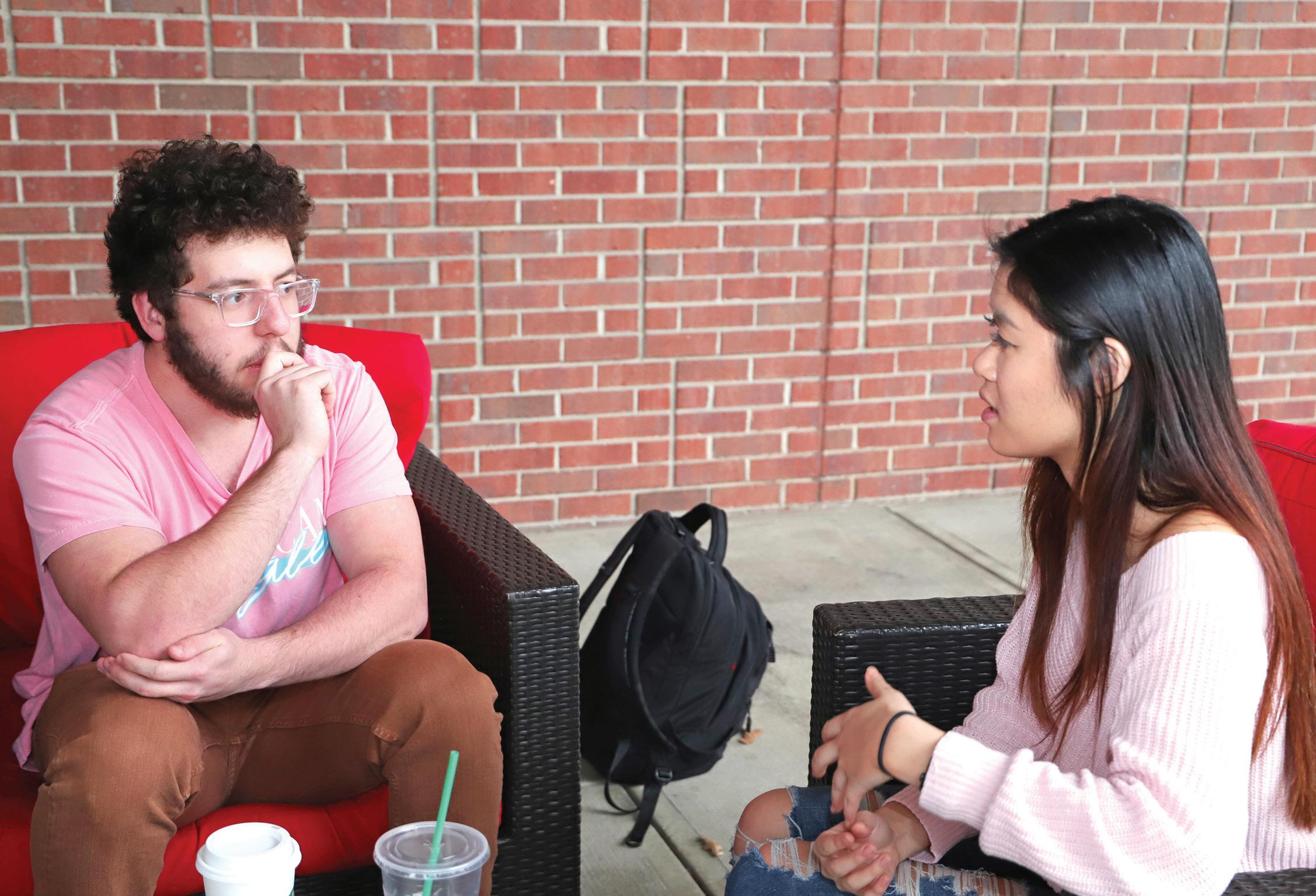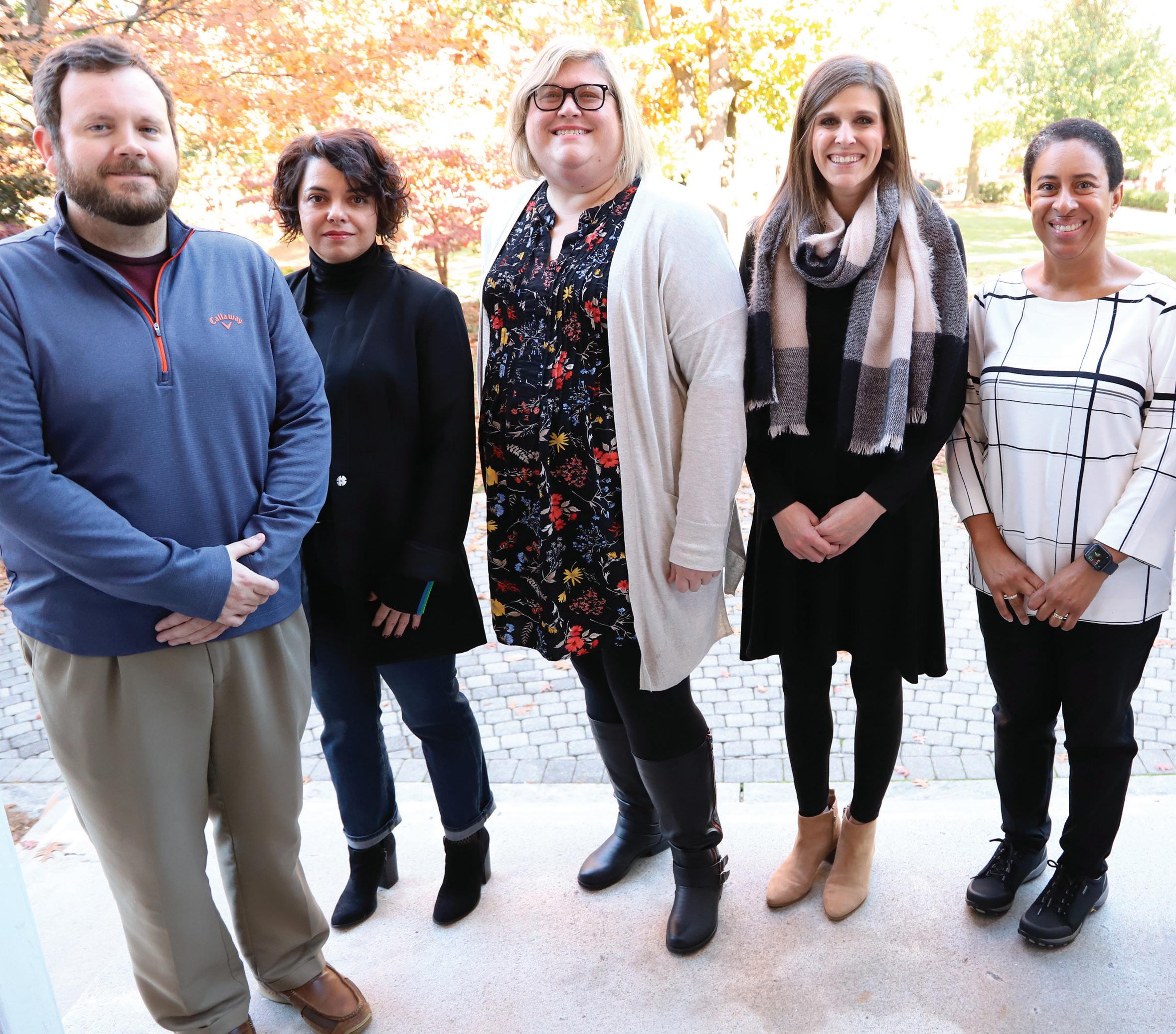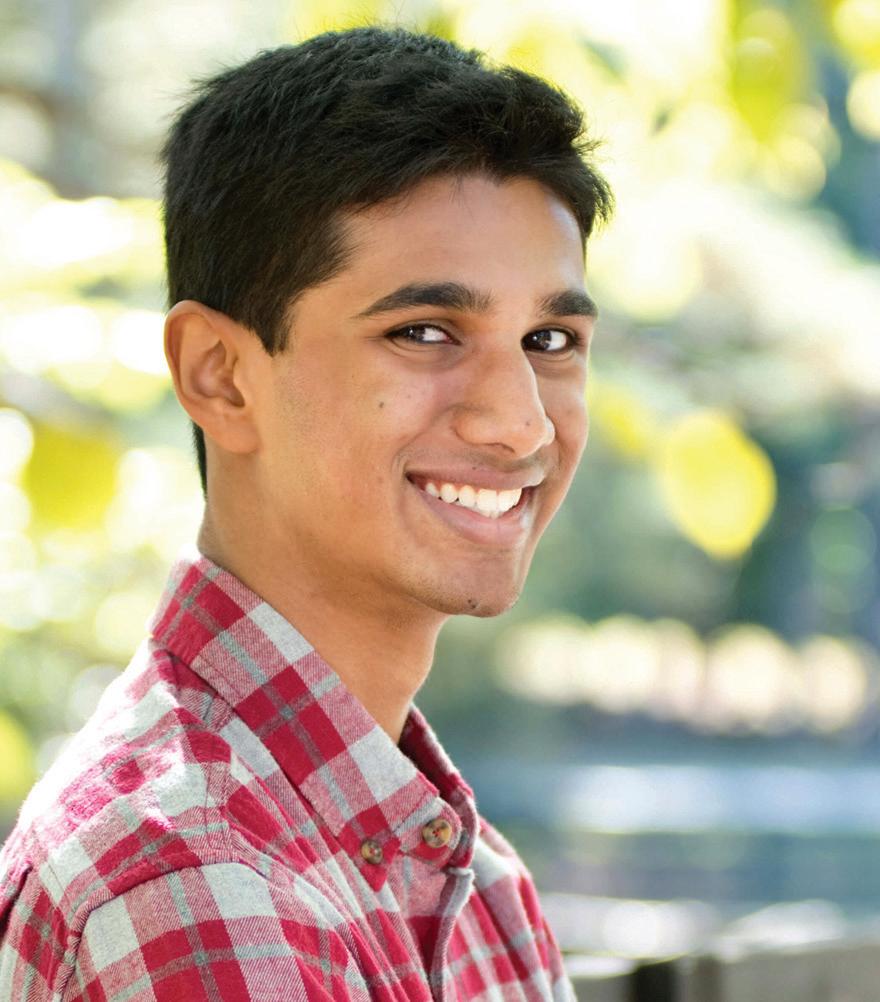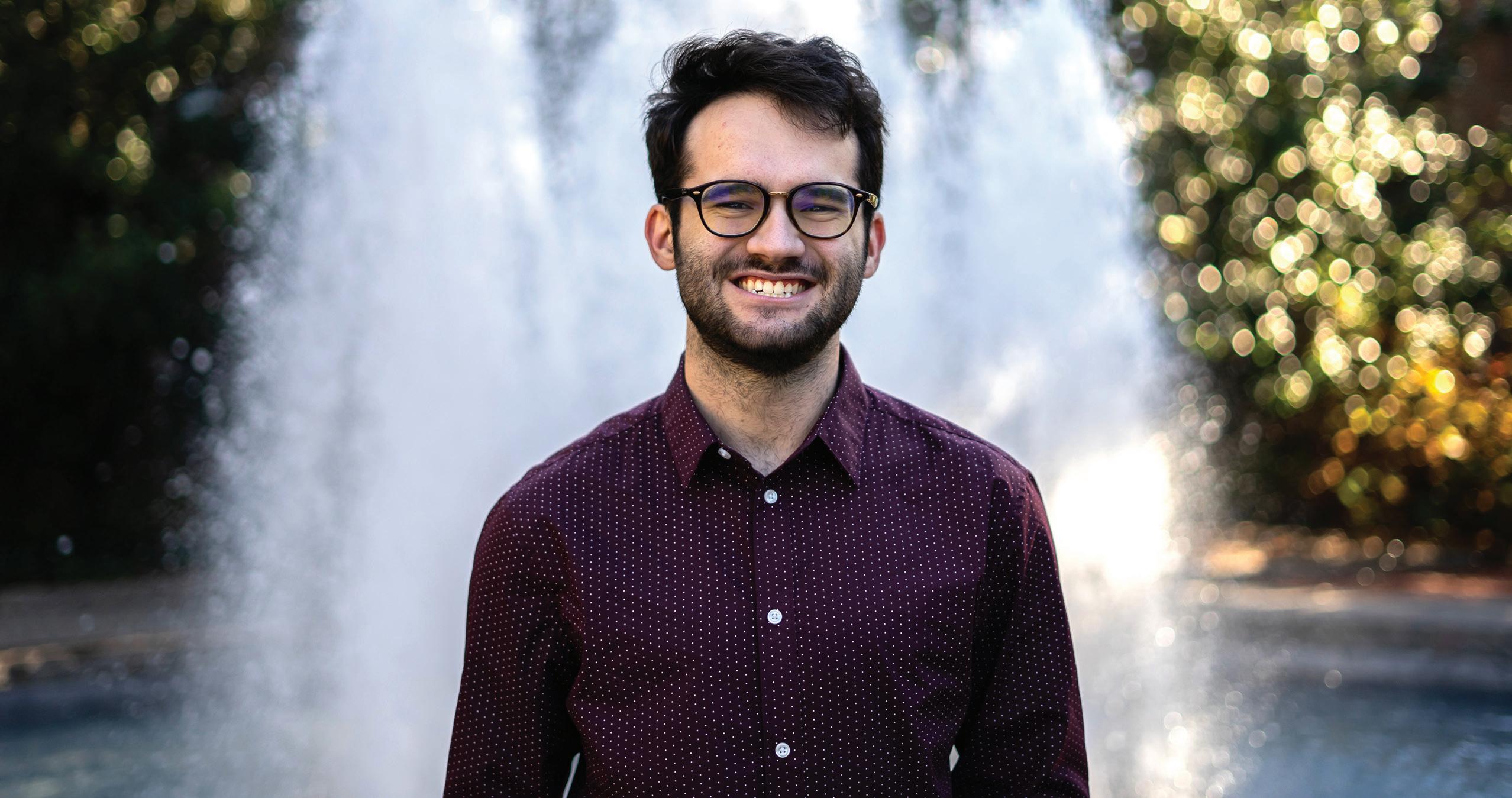
3 minute read
PAL mentorship
PEER ASSISTED LEADERSHIP
Student-to-student mentorship program gives undergraduates ‘a stronger sense of community’
By Kora Burton
On a cloudy Georgia Wednesday, second-year Honors student May Hu and first-year Roy Epstein Koch meet to catch up and have coffee outside the Tate Student Center. Last semester, they were PALs—participants in the Honors Program Student Council’s Peer Assisted Leadership program.
The mentor and mentee dive into conversation, chatting about upcoming interviews, choosing clubs, and balancing academics with social life.

Roy Epstein Koch, left, and May Hu were paired up as mentee and mentor through the Peer Assisted Leadership (PAL) program.
Kora Burton
Every semester, Honors underclassmen and upperclassmen are paired through PAL to discuss everything from professors to downtown restaurants to hobbies and interests. Participants are asked to meet three times during the semester-long program.
Mentors help fill in the blanks, said Roy, a management information systems and international business major who did extensive research before starting college at UGA last fall.
“I knew where I would be living in Myers, and I knew what kind of clubs I wanted to join, but once I got on campus, it’s so much at once that it’s really hard to get through,” he said. “After meeting May, it helped me organize my thoughts.”
May sees the mentoring relationship as a two-way street.
“Honestly, I got as much help from him as he got from me,” said May, who is majoring in management information systems, international business, and psychology. “I think that in itself is such a testimony to the friendship that’s built from this.”
PAL has had positive ripple effects in the Honors Program since it was started in 2015, said Maria de Rocher, assistant director of Honors and programming and the Honors Program Student Council staff advisor.
“It was an entirely student-led initiative to help foster a stronger sense of community among Honors students. And that they’ve certainly accomplished,” she said. “I’ve been tremendously impressed by the success of the program.”
PAL is chaired this academic year by Monte Fischer, a fourth-year Foundation Fellow finishing his degrees in mathematics and computer science through the Double Dawgs program, and co-chair Meredith Van De Velde, a third-year Ramsey Honors Scholar studying computer science and international affairs.
They are in charge of the PALgorithm, the problem solving mechanism that connects mentors and mentees each semester. The algorithm matches students by pre-professional track, major, and minor. Then, Monte and Meredith go through the data and fix any matches that don’t make sense.
“I really have to give kudos to whoever pairs people up,” May said about her match with her PAL, Roy. “We were a really good fit.”
PAL program chairs run the programming and orientations each semester, ensuring that students who want PAL mentorship are provided with as many opportunities as possible.
“PAL’s main function is to connect people and to pass some knowledge down between different generations of UGA students,” Monte said. “I’m responsible for drafting emails that go out on the Honors Listserv and the application forms. Once we’ve tabulated the responses, I lead the effort to match students up.”
Meredith is assisting with the semester’s two orientation sessions, making plans for upcoming semesters, and running the PALgorithm as applications from mentors and mentees come in during the first part of the semester.
“PAL is a really cool program, and it’s cool to use coding to do it,” she said. “It’s also drawn a number of computer science majors into the Honors Program Student Council, which is great.”
After matches are complete and emails go out, it’s time for the PAL orientation, which is held twice a semester.
“We make the matches,” Meredith said, and mentors and mentees—like May and Roy—do the rest.
“The most impactful part of PAL has been the support and friendship,” said Roy, who is approaching the end of his freshman year. “May helped me set a bunch of professional and personal goals throughout the year. The PAL program showed me that you can put all this chaos into order. It made campus seem a lot more doable.”









